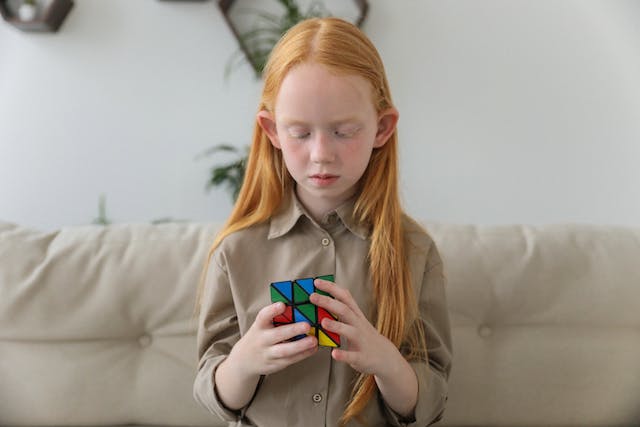
Childhood development is something that needs to be cherished, nourished, and understood by parents since the development you get as a child sticks with you for the rest of your life, and not having the right skills may be something you can never change. Keep reading to find out why it’s so important to use things that stimulate children and make them think, especially the humble puzzle, which has been a powerful ally in parenting for centuries.
1. Cognitive Skills
You may have heard it time and time again, but it still rings true: cognitive skills development is absolutely essential for all children, and there’s a period when they’re more receptive to it than ever. If you’re successful in introducing your child to puzzles, either those in person or an app like Patterned, you’ll have something to keep them occupied and entertained for hours while also making sure they’re figuring out how to perceive objects in space, and how different pieces of the puzzle fit together. Through exercising memory, spatial awareness, concentration, and awareness, your child will slowly learn how to deal with issues step by step and piece things together until they make sense.
2. Motor Skills
While puzzles are great for developing cognitive awareness, they’re also great for developing motor skills since many puzzles are made of incredibly small and minor pieces that have to be handled with care. While this may not seem like a major benefit, the toys that toddlers use are often gigantic and equal to or more than the size of their hand to prevent swallowing, and being able to use small puzzle pieces is a major milestone for many kids. Working with these tiny pieces will make their fingers more nimble and will make them more careful with the pieces they’re using and how they’re assembling them because one wrong move could break an entire jigsaw puzzle.
3. Recognizing Shapes
As previously mentioned, there’s always a factor of recognizing shapes and making them stand out when you’re solving puzzles, and while it may seem easy to you now, it doesn’t come naturally for every kid unless they train this skill. The different pieces of a puzzle that you give to a child all fit together in their own particular way, and understanding their dimensions as well as whether or not two pieces fit together. Through trial and error, every kid will be able to understand what makes two puzzle pieces compatible, and they’ll be able to apply this information to future puzzles that they solve and, eventually, the real world.
4. Testing Focus
Puzzles require an immense amount of focus, especially at an early age when the brain is not fully developed. In order to solve a puzzle, a child needs to maintain focus and interest in the task at hand, remembering how the image fits together while they reach for particular pieces to test them out. The more puzzles they solve and the more time they spend on this task, the easier it will become for them to focus on problem-solving, and you’ll be able to notice this change in your child’s behavior in a short time.
5. Rewarding Hard Work
Unlike their hard-working parents, children often have no concept about working hard through necessity and getting a form of compensation and reward, especially as many kids give up on difficult tasks and lose interest in completing them immediately after picking them up. However, if you encourage your child to begin solving puzzles, they’ll be able to solve problems that are at their skill level and see a reward for all of their effort and hard work through the finished product or image they’re left with at the end of the process, and this will ensure they’re able to maintain motivation for all the projects they undertake in the future.
Conclusion
Critical thinking and problem-solving are two skills that are universally needed and applicable in virtually every situation, and by ensuring you’re giving your kids these skills, you’ll be preparing them for the real world, which is the ultimate goal of parenting. A powerful tool you can use to this end is the puzzle, which can be just difficult enough for kids to ensure they’re developing new skills and new ways of thinking to figure out how to solve them.


